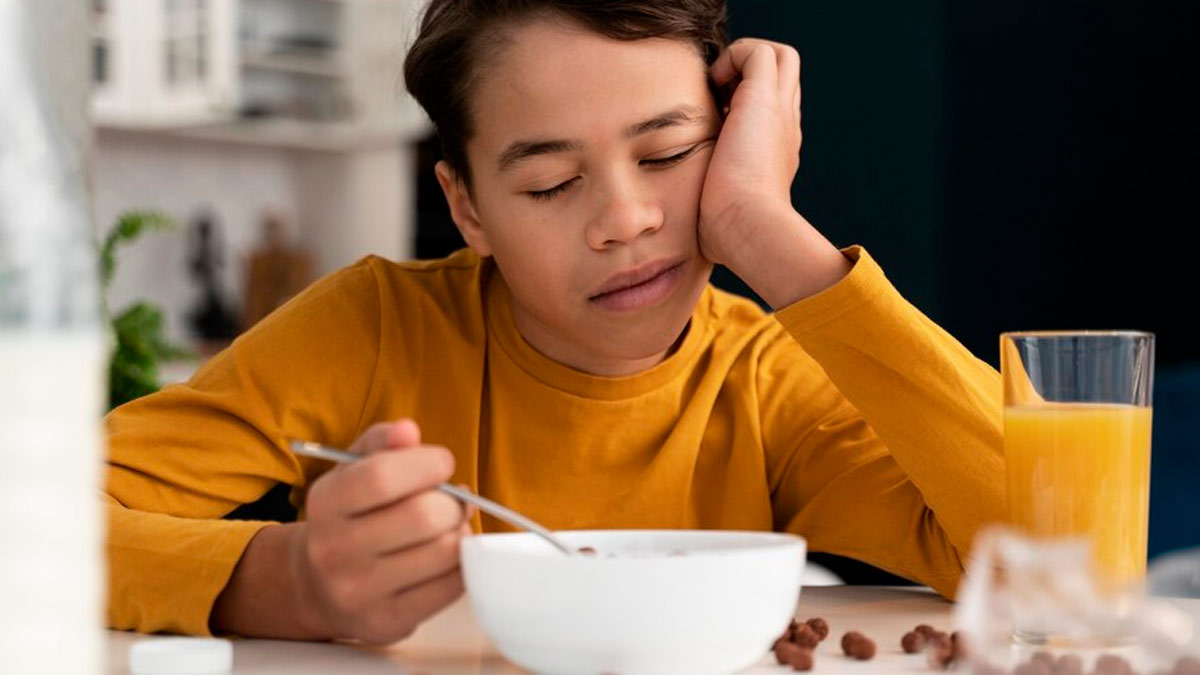
Protein is an essential macronutrient made up of chemical 'building blocks' called amino acids. It plays a key role in several bodily functions, including the recovery and repair of tissues in the muscles, and aids in children's development and growth.
Table of Content:-
According to Bharati Bhatt, Dietitian, HCG Hospital, Bhavnagar, protein helps contribute to the mental and physical health of children, and without adequate protein levels, kids may experience various symptoms, such as fatigue, lack of concentration, lowered immunity, and more. Hence, it is not only important to understand your child’s protein needs but also what causes the deficiency and how it can impact your child’s health and wellness.
Also Read: Protein-Rich Foods That Help Reduce Your Risk Of High Blood Pressure or Hypertension
Causes And Symptoms Of Protein Deficiency In Children

An inadequate intake of protein is what increases the risk of protein deficiency and related conditions like kwashiorkor in children.
Kwashiorkor is a rare disease in the United States. However, in regions like Southeast Asia, Central America, the Congo, Puerto Rico, Jamaica, South Africa, and Uganda, the rates of affected persons are much higher, according to StatPearls Publishing.
Common causes include malnutrition, pregnancy, eating disorders, liver disorders, kidney problems, and Inflammatory Bowel Disease (IBD), says Bhatt.
As far as kwashiorkor is concerned, while the exact cause is unknown, diets based mainly on maize, cassava, or rice are frequently associated with the disease, as per research. In children, it can be linked to recent weaning, recent infection (particularly measles), and disruptions in childhood (parental death, temporary home environment, poverty).
Common Symptoms Of Protein Deficiency In Children

Some of the common symptoms of protein deficiency in children include:
- Oedema, or swelling on both sides of the body
- Skin and hair changes
- Getting sick more frequently
- Muscle loss and weakness
- Decreased bone development and density
- Stunted growth.
- Unexplained weight loss or gain.
- Anaemia
Also Read: Weight Loss Diet: Add These 10 High-Protein Fruits To Lose Weight
Which Groups Of Children Are At Risk?

According to Bhatt, preschool-aged children in developing countries are often at risk for protein deficiency associated with malnutrition.
The expert adds that children who don't eat enough food, those who eat a strictly plant-based diet without taking protein needs into account, and kids who live in underdeveloped areas are at a greater risk of developing the condition.
Factors that affect protein requirements include:
- Carbohydrate intake
- Hormone profiles
- Gut health
- Protein quality
- Calorie intake
How Parents Can Ensure Adequate Protein Intake In Kids
While the exact protein needs of children are still being researched, estimates reported in a 2021 study published in the journal Nutrients suggested that children between 4 and 13 years old require about 0.95 grams of protein a day for every kilogram they weigh, while those between 14 and 18 need slightly less at 0.85 grams.
However, these numbers may be underestimated, as recent studies using advanced methods indicate potentially higher protein requirements, especially for children engaging in physical activity.
To ensure adequate protein intake in children, Bhatt recommends incorporating lean meats and protein-rich foods like poultry, fish, eggs, legumes, and dairy products.
[Disclaimer: This article contains information provided by an expert and is for informational purposes only. Hence, we advise you to consult your own professional if you are dealing with any health issues to avoid complications.]
Also watch this video
How we keep this article up to date:
We work with experts and keep a close eye on the latest in health and wellness. Whenever there is a new research or helpful information, we update our articles with accurate and useful advice.
Current Version